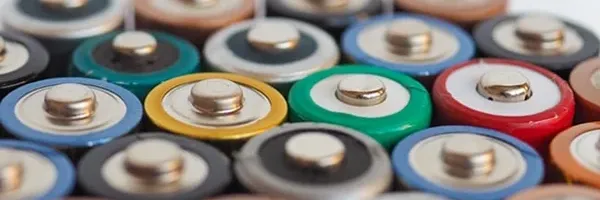What is the best type of battery to make at home?
Grade 8
Presentation
No video provided
Hypothesis
We hypothosise that the best battery to make at home is the coin battery. As it seems really simple and non expensive. We also hypothosise that the battery best for people and society as a whole is the lithium ion. (what we mean by people and society as a whole is it has the least impact on the inverment(for example lets say the battery lasts 100 years but causes a lot of harm to the invirment that would be better compared to a battery that only last 1 year and causes a little impact on the inverment because over time that little adds up to be more than the big impact) and is most affordable for people like you and mean)
Research
We have done our reaserch in two ways the pros and cons in jot notes and how they work and what parts are used in paraghraph form.
Lithium Batteries
PROS:
-Most common battery used almost everywhere
-Long life span cappable to be recharged 2,000 times and 5-10 year life span
-Lightweight compact
-The highest mAh(mAh a unit of measuring energy density or storage higher the better)
-Their faster charging with better water and erosive resistance makes them key for transport vehicles(Tesla...)
CONS:
-Uncommon resources and are higher price
-Almost impossible to repair
-Only 5% of lithium batteries are recycled because they need a special facility to be recycled creating a good amount of toxic pollution
How do these batteries work?
Batteries work by charging and discharging electrons through electrolytes. So these lithium batteries are made up of anode, cathode, separator (separates the anode and cathode), electrolyte(lithium), and two current collectors(positive negative ends of batteries). Basically, the anode carrying a positive lithium ion charge is then sent to the cathode and the cathode sends negatively charged ions back creating free electrons in the anode and making energy which is transferred into your device.
Alkaline batteries
PROS:
-Low cost to make and buy
-Works in extreme temperatures
- 8-10 years (good shelf life)
-High mAh
-Common
CONS:
-Needs a bulkier exterior
-Generally not recharged as if done wrong has a chance to explode
-Because of the need for toxic chemicals to make it may leak over time and corrode the battery
-High internal resistance reduces output
Carbon-zinc batteries
PROS:
-High efficiency when charging
-Still has good performance in low temperatures
-Low cost per unit
-Non-hazardous
CONS:
-Uncommon
-Low mAh rating
-Short lifspan 2-3 years
Lead acid
PROS:
-First batteries invented back in 1859
-Often used in motorised cars, wind turbines, and as backup power situations
-Low cost, and common
-Reliable and robust in the coldest of weather and hottest of weather
-Don't break down they are also durable
-High power output makes them great for starting engines
CONS:
-Heavy and bulk shape makes it hard to move around and unlikable for portable electronics(phones, comuters, remots...)
-Short life span of 3-5 years
-Constant maintenance (like adding distilled water or other tasks)
-Impact on the environment like lithium ion they are rarly recycled although not as harmfull as lithium but is unfortaunatly amplified by there short lifespan
How they work?
Made from lead and sulphuric acid, and works by having the sulphate bond to the lead in the battery making an electrical charge, and to regain that charge again all you need to do is separate the bond with another electrical charge(this is how it stores charge).
Variables
Based off of our research we realize that not every battery will be viable to make at home because of well the chemichals involved or the complex and dangeruos construction prosses.(this is a low risk project not high risk) So instead we will construct a
Procedure
Observations
Analysis
Conclusion
Application
Sources Of Error
Citations
Sources:
Types of batteries:
https://www.batterieswholesale.com.au/common-battery-types/
We will research:
Lithium Carbon Zinc
Alkaline Lead Acid
Iron Air Grid(industrial scale)
Lithium batteries:
https://selex.vn/en/lithium-ion-battery-pros-and-cons/
Lead acid:
https://www.sciencedirect.com/science/article/abs/pii/S0378775321012052
https://www.rbbattery.com/how-does-a-lead-acid-battery-work/
Alkaline:
Zinc carbon:
How they work
Pros cons
Acknowledgement
I would like to acknowledge my dad and my good partner michal for all the help with reaserch and all the people who made that reaserch.

